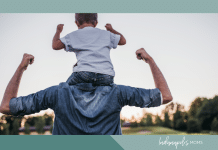

Sticks and stones may break my bones, but names will never hurt me.
Names do hurt. In fact, they hurt like hell. Certain names, words, insults, and slurs carry with them a legacy of historical power imbalances: legacies of segregation, of oppression, and of the ability of one group to employ their power to silence another.
One such word- a word that is so repulsive that it makes my skin crawl- is retarded.
Merriam-Websters definition of “retarded”: slow or limited in intellectual or emotional development; characterized by mental retardation. It also states, “sometimes offensive.” Ever since I can remember, people have used this term loosely and deliberately to refer to someone as “dumb.” Thankfully, medical professionals have evolved and are moving away from usage of the word because of the negative stigma that is attached.
Many people, however, continue to use the word as an insult. Sadly, it’s still commonly used, not only in spite of the negative connotation it carries, but because of it.
A friend of mine, a fierce and dedicated advocate for her daughter who has Down Syndrome, recently came across a Netflix special where a comedian lazily relied on making fun of people with Down Syndrome as one of his jokes. Needless to say, the Mama Bear came roaring out, and my friend left a scathing review. The comedian personally responded to it- not with class, but by posting her review on his social media page, essentially calling on back-up from his fans to silence her.
From there, dozens of his fans tracked down my friend on her social media and sent threats, hate-fueled insults about her daughter, and comments suggesting she kill herself.
From this response, she has since gained national attention and is urging people to protest and demand Netflix remove this particular special.
Free Speech or Hate Speech?
Many can argue, “don’t watch if you don’t like it,” and “that it is just freedom of speech.” Yes, every person has the right to freedom of speech, but here’s what people are getting wrong. Are jokes just jokes? Does everyone just make fun of everyone else? Maybe. But there’s a power imbalance here. Historically and contemporarily people with dis/abilities in our society have been killed, hidden, segregated, and silenced. In the midst of determined, wounded veterans from World Wars I and II and within the spirit of the Civil Rights era, people with dis/abilities were finally recognized as a protected class of citizens deserving of civil rights, codified through the Rehabilitation Act of 1973. And it was still years before kids with dis/abilities were able to attend public school, and if you’re the parent of a child on an IEP, then you know the fight for inclusion is still very real.
If we are really honest with ourselves, we haven’t come that far since 1973: certainly not far enough to act like people with dis/abilities aren’t still largely segregated and hidden from society, and certainly not far enough for a non-dis/abled semi-celebrity to exploit the power imbalance for his Netflix special.
Not to mention the difference between free speech and hate speech. Hate speech refers to singling out a group of people based on race, sex, gender, religion, or disability, often “inciting violence of prejudicial action” against a protected group. In his stand-up bit, is this comedian exercising his right to free speech? I guess. But what about when his fans flooded my friend with messages and threats ? My friend, who, by the way, was standing up for her daughter.
Having two sons with their own dis/abilities, I would be absolutely broken if someone singled them out because of their syndrome. Being singled out and ridiculed because they were born differently is hateful. What gets lost in using people with dis/abilities as the punchline for jokes is that these individuals are more than a diagnosis, word, or lack of particular abilities. They are living, breathing, beautiful human beings with as much a purpose in life as anybody else. These individuals have feelings, emotions, and want to live life like everyone else. They are entitled to live life with dignity and are more than deserving of the respect of others. People can hide behind their words and use freedom of speech as an excuse to make people with dis/abilities the butt of their jokes, but they are a prime example of hate.
And as long as I am living, I will not stay silent on the issue.
Be The Change
The only way people will start to change their attitude towards hateful speech and the “R” word, is if we start to hold them accountable for their actions and their words. Put yourself in the shoes of my friend. Can you imagine someone with the power that this man had giving people a pass to make fun of your child? Can you imagine people thinking it’s okay to speak vile and discriminatory words not only about someone you love, but your child? Can you imagine if someone said those things directly to your baby?
Don’t underestimate the power of language. Language shapes the way we think, and it shapes the way we act: words become our thoughts, our thoughts become our actions. We have the duty to override the hate and we have the power to be the change! So, what will you do the next time you encounter the “R” word? Will you join those who are active against the use of this word?









Really powerful and 100% true. She has an army behind her with so much love and support. We will not stop fighting!
For my daughter with Down Syndrome, thank you for expressing all my thoughts and feelings.
Comments are closed.